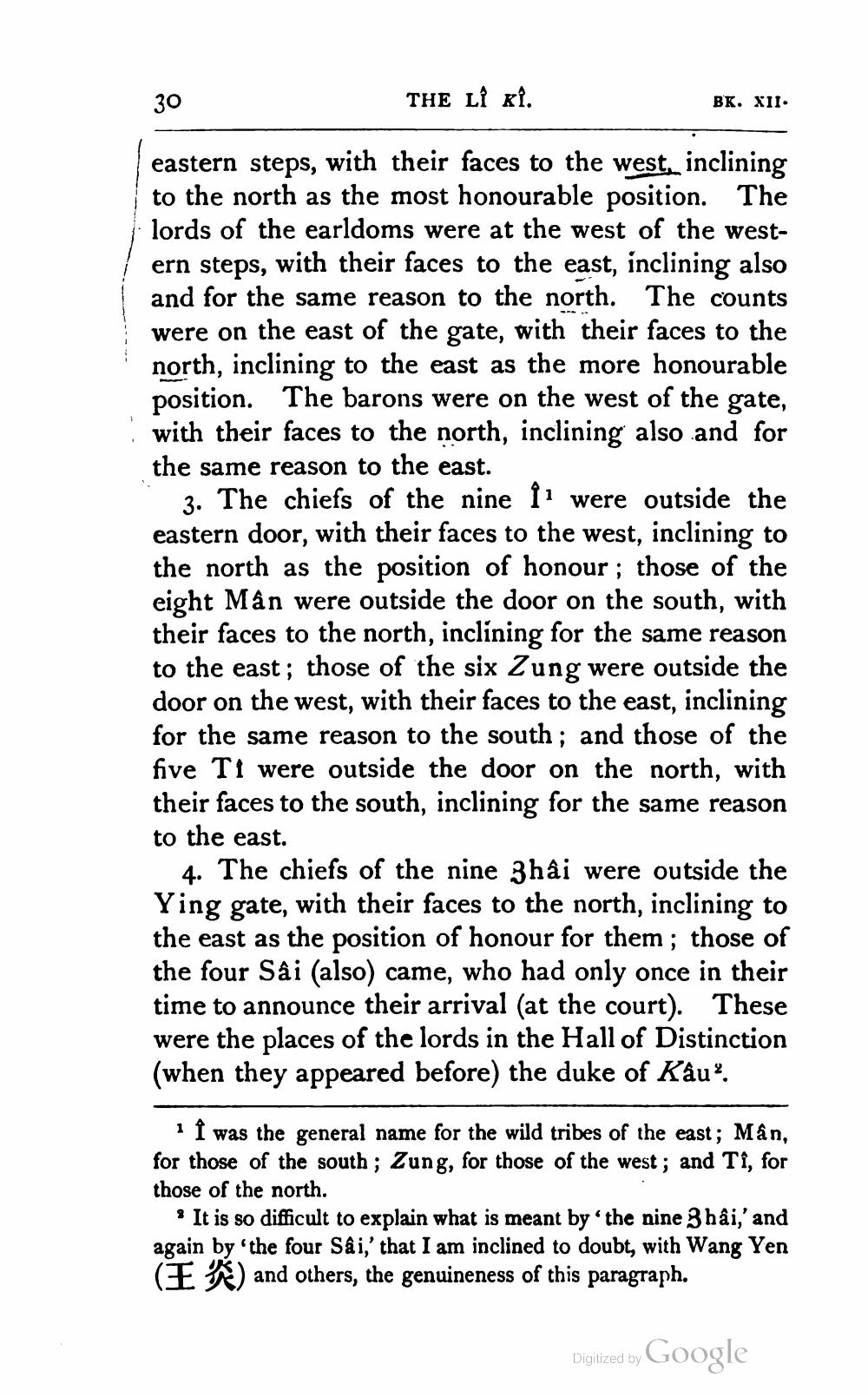________________
30
THE LÎ kt.
BK. XII.
eastern steps, with their faces to the west, inclining to the north as the most honourable position. The lords of the earldoms were at the west of the western steps, with their faces to the east, inclining also and for the same reason to the north. The counts were on the east of the gate, with their faces to the north, inclining to the east as the more honourable position. The barons were on the west of the gate, with their faces to the north, inclining also and for the same reason to the east.
3. The chiefs of the nine ii were outside the eastern door, with their faces to the west, inclining to the north as the position of honour; those of the eight Man were outside the door on the south, with their faces to the north, inclining for the same reason to the east; those of the six Zung were outside the door on the west, with their faces to the east, inclining for the same reason to the south ; and those of the five Ti were outside the door on the north, with their faces to the south, inclining for the same reason to the east.
4. The chiefs of the nine Zhâi were outside the Ying gate, with their faces to the north, inclining to the east as the position of honour for them; those of the four Sâi (also) came, who had only once in their time to announce their arrival (at the court). These were the places of the lords in the Hall of Distinction (when they appeared before) the duke of Kâu?.
· I was the general name for the wild tribes of the east; Mân, for those of the south ; Zung, for those of the west ; and Tî, for those of the north.
It is so difficult to explain what is meant by the nine 3 hãi,' and again by 'the four Sâi,' that I am inclined to doubt, with Wang Yen (E X ) and others, the genuineness of this paragraph.
Digitized by Google




